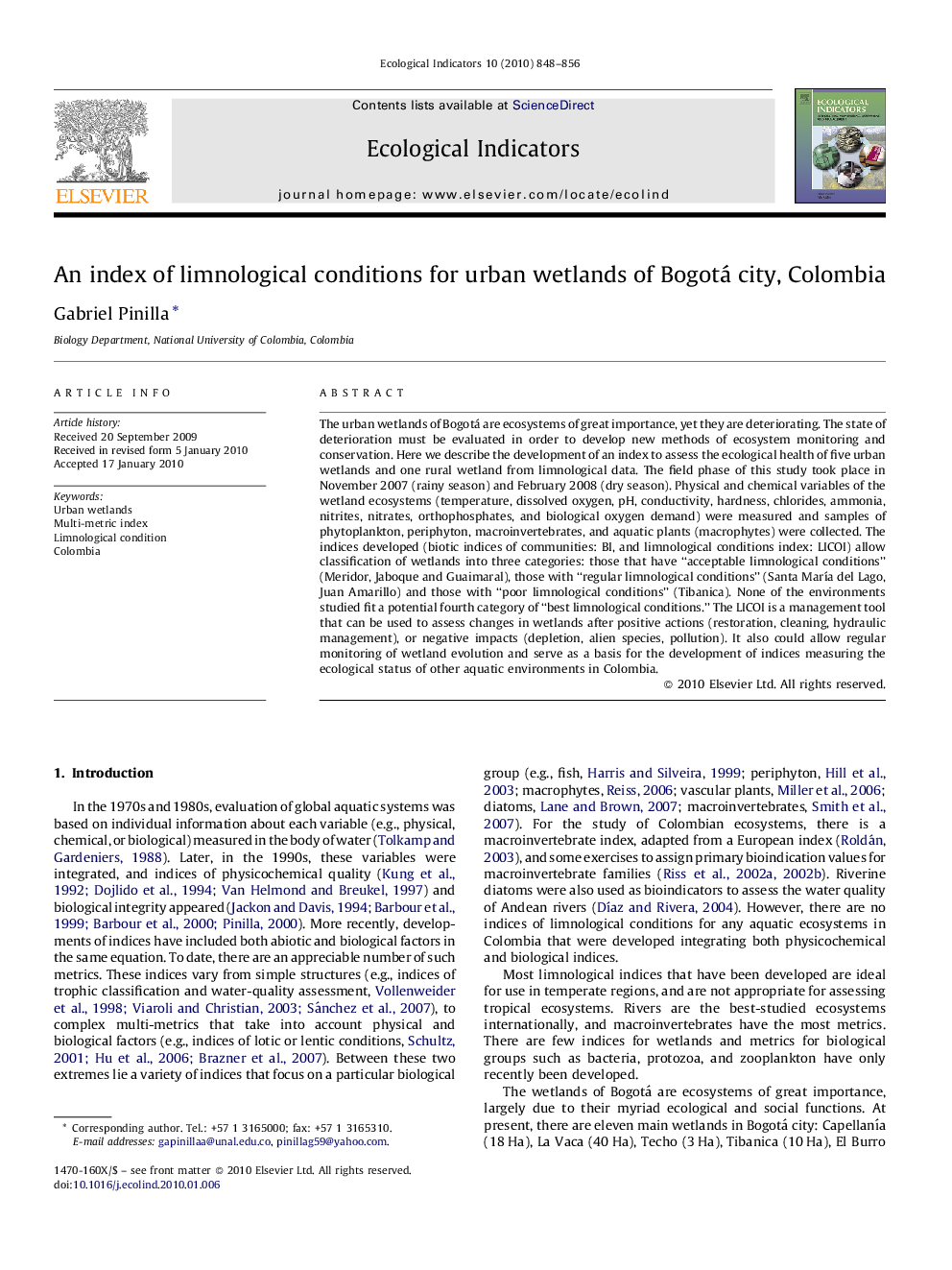| Article ID | Journal | Published Year | Pages | File Type |
|---|---|---|---|---|
| 4374232 | Ecological Indicators | 2010 | 9 Pages |
The urban wetlands of Bogotá are ecosystems of great importance, yet they are deteriorating. The state of deterioration must be evaluated in order to develop new methods of ecosystem monitoring and conservation. Here we describe the development of an index to assess the ecological health of five urban wetlands and one rural wetland from limnological data. The field phase of this study took place in November 2007 (rainy season) and February 2008 (dry season). Physical and chemical variables of the wetland ecosystems (temperature, dissolved oxygen, pH, conductivity, hardness, chlorides, ammonia, nitrites, nitrates, orthophosphates, and biological oxygen demand) were measured and samples of phytoplankton, periphyton, macroinvertebrates, and aquatic plants (macrophytes) were collected. The indices developed (biotic indices of communities: BI, and limnological conditions index: LICOI) allow classification of wetlands into three categories: those that have “acceptable limnological conditions” (Meridor, Jaboque and Guaimaral), those with “regular limnological conditions” (Santa María del Lago, Juan Amarillo) and those with “poor limnological conditions” (Tibanica). None of the environments studied fit a potential fourth category of “best limnological conditions.” The LICOI is a management tool that can be used to assess changes in wetlands after positive actions (restoration, cleaning, hydraulic management), or negative impacts (depletion, alien species, pollution). It also could allow regular monitoring of wetland evolution and serve as a basis for the development of indices measuring the ecological status of other aquatic environments in Colombia.
